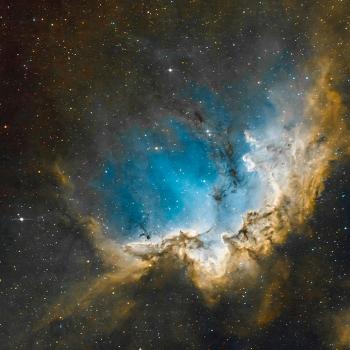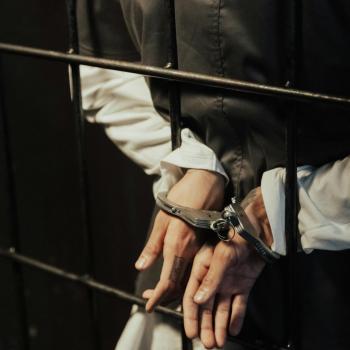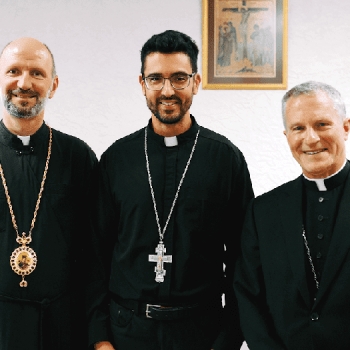Natural disasters like Hurricane Sandy, which create large-scale human suffering, raise key theological questions. Generations of authors—from the flood narratives, to Voltaire in Candide, to Camus in The Plague—have all tried to make sense of why a good God might permit mass destruction. Nowadays, when a natural disaster like Sandy is seen by some as evidence of anthropogenic climate change and ultimately a threat to life on Earth, the problem of suffering takes on an even grander scale—it asks whether humans are going to be the authors of their own apocalyptic destruction. For Patheos, Erik Campano spoke with Dr. Bron Taylor, a professor of religion and environmental ethics, and author of Dark Green Religion: Nature Spirituality and the Planetary Future.
Is there a general pastoral theological response to natural disasters?
Natural disasters (which is an apt way to talk about Sandy and Katrina, even if they are due in part to anthropogenic climate change) seem to evoke the same kinds of responses to suffering and death as to other unexpected and apparently arbitrary forms of it. In other words, the repertoire of explanation available to people has already been shaped by the wider culture and their own religious or philosophical traditions. I do not perceive markedly different responses in this case.
Are you saying—whether one is Christian, Muslim, Hindu, non-affiliated, or whatever—that the psychological dynamics of the response to large-scale suffering seem to be the same? Does that mean that different traditions, with different explanations for the problem of evil or suffering, don't impact how people experience it "in real life"?
No, it means that they will typically respond to Sandy and her effects in a way their cognitive frames are set to respond to similar events. People with different cultural and faith traditions, or different traditions within broader traditions, will differ.
Can you give an example of that difference?
Sure. Let's look at evangelical Christianity in the U.S. as a subset of a broader Christianity in the U.S. and yet a smaller subset of Christianity globally. Some evangelical Christians are more inclined to accept consensus scientific understandings about climate change than others, and some of these have signed a statement to the effect that they believe anthropogenic climate change is happening, harmful, and that there is there is a Christian moral duty to address it. Another group of Christians, which is more skeptical and distrustful of science in general and climate science as well, has issued a competing statement, casting doubt on the notion of anthropogenic climate change and arguing that it is morally wrong to urge reductions in carbon emissions because that would harm human well-being, and especially poor people, by slowing economic growth. So, different assumptions from different cultural and religious streams (even within the same broad tradition) produce very different judgments.
Do you think, though, that this philosophical difference about the explanation of the origins of Sandy (or any natural disaster) actually affects how people react emotionally in the moment to the event? In other words, would people who see this event as part of a larger narrative of failure of stewardship react with greater horror? Or another emotion?
I would imagine that those who surmise that the intensity and destructiveness of Sandy is due to human activity and failings, including religious failings to accurately perceive and respond to these realities or recognize the religious duty to do so, would lead such individuals to have an additional level of frustration, and perhaps also guilt. Those who have no such frames, such as those who disbelieve that humans are impacting climate or affecting storm frequency or intensity, or whose frames include a strong view of the sovereignty of God, where nothing happens for which God is not directly or indirectly responsible, would have no such emotional reaction.
Your research shows that one of the barriers to people "in the pew" believing in anthropogenic climate change has to do with the theological notion of God's sovereignty. But what might a "tipping point" (to use the common phrase nowadays) look like, at which enough obvious change would cause the people "in the pews" to change this notion? How did, for example, the black plague—or another disaster—affect mass opinions about God in the world?
To give credit where it is due, I would say that research I facilitate and publish in the Journal for the Study of Religion and Nature, including the current issue focusing on religion and climate change, shows very clearly that in many contexts, theological understandings hinder apprehension of and concern about climate change. This includes notions of the sovereignty of God, eschatological beliefs, notions about what the most important religious duties are (evangelism and providing pastoral care, or even things like keeping the religious institution up and running). My clear impression is that most of the world's religions have ideas and priorities that, even if they do not hinder belief in anthropogenic climate change, work against it becoming an important ethical or practical concern.




